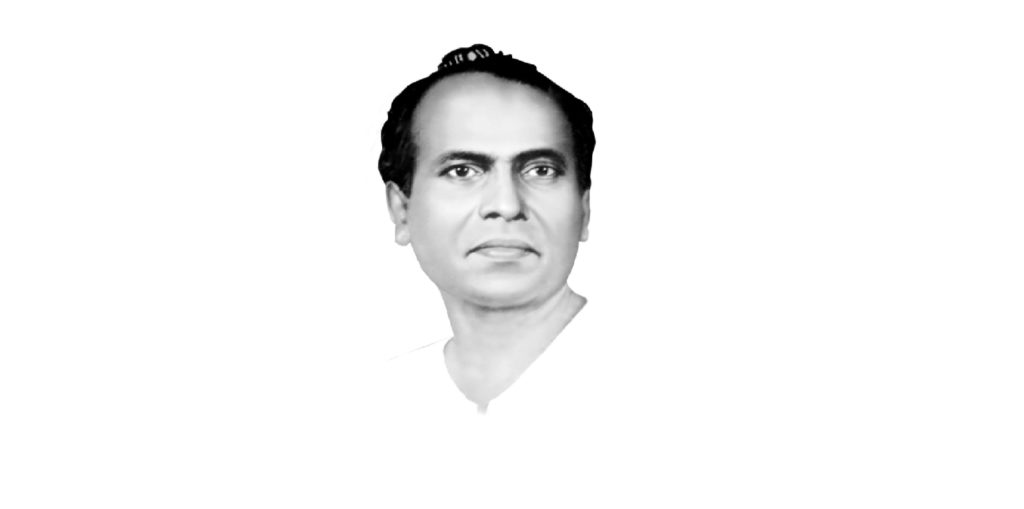
Annabhau Sathe – Remembering The Founder of ‘Dalit Literature’
At present, when from mainstream media to many artists are lying at the feet of the ruling government, writers are being threatened with legal cases, the fear of speaking against government is running high, democracy and constitution is on its last leg, Annabhau Sathe’s work can show the path to challenges and overcoming those.
Tukaram Bhaurao Sathe popularly known as Annabhau Sathe was born in Dalit community (Matang) on 1 August 1920 in Wategaon village in Sangli district of Maharashtra. Poverty and caste discrimination in the village led Sathe’s family to move, on foot, to Mumbai in 1931 and Annabhau couldn’t attend the school. It took Sathe’s family almost 6 months of the walk to reach Mumbai, where the situation wasn’t much different. Poverty and discrimination were rampant.
During his lifetime, he wrote 35 novels, 10 folk dramas, 24 short stories, 10 Powadas (Ballads), over 200 songs, one play and a travelogue, which have been published in Marathi by Maharashtra government in 1998 and many of his writings are still unpublished.
Anguish against the caste and class brutality can be seen in the imagery that Annabhau assert through his writings, which are testaments of self-respect and resistance.
Disillusionment, anger and anguish accompanied by a desire to break the system that puts Dalits at the bottom rung come alive in Dalit literature. It makes others realize the pain and screams of Dalits, which have never been heard if heard ignored, for equal rights and encourages liberation through relentless struggle.
Gail Omvedt, an American-born Indian scholar and human rights activist, in her book ‘Dalit Literature of Maharashtra’, notes that Annabhau Sathe used all the forms of art and that was the beauty of his writings and if as movement Dalit literature emerged during the era of 1960-70 it was because of Annabhau Sathe.
He was truly the founder of Dalit literature.
Annabhau Sathe was a visionary writer who wrote extensively and depicted his characters from downtrodden, lower strata of society, rebelling against the injustice and breaking the class and caste traditions to get the rightful position. Annabhau said that I write only what I live, see and experience in life. “All my characters are real, alive, he said.”
While in Mumbai, Annabhau worked in odd jobs before he found work at a textile mill, where he came in contact with leaders of the Communist Party of India. Inspired by the communist ideology and leaders such as S. A. Dange, Sathe started became a fulltime communist worker and started Lal Bavta Kalapathak (Red Flag Performing Troupe) in 1944 to propagate communist ideology.
He got state award in 1961 for his novel named ‘Fakira’. Annabhau Sathe wrote in the praise of Dr Ambedkar and Lenin, probably the only one to do so. His writings played a vital role in the Samyukta Maharashtra movement as well. Annabhau Sathe visited Soviet Russia in 1961 as a representative of Indo-Soviet Cultural Society. He wrote a travelogue on his visit to Soviet Russia, which is credited as the first travelogue by any Dalit.
At the end of his, when Annabhau understood that class issue can only be solved when caste issue is resolved, he turned towards Ambedkarite anti-caste movement, so he was abandoned by Communist compatriots.
During his last days, Annabhau Sathe lived in destitute, living in Ghatkopar slum. Only a year before his death government offered him a modest house in suburbs of Mumbai, where he lived till his death on July 18, 1969, He was born in poverty and died in poverty, ignored by the society which he tirelessly wanted to be more sensitive towards humanity. Annabhau Sathe’s work would continue to inspire and challenge state suppression and extend hope to working classes.
Dr. Ambedkar wrote in book, Ranade, Gandhi, and Jinnah, ‘for in these days, with the Press in hand, it is easy to manufacture Great Men.’ This is what has happened to real heroes – forgotten – and new ideals, who have not contribution toward fighting for equality, are being created to fulfil political motives. It’s a misfortune of India that much of the works of many Dalit writers such as Annabhau Sathe have not been translated to other languages and if translated, is missing from the school curriculum and public libraries. It would be great service and tribute to the legend if his works were published and translated to English.
On August 2002, post department of India issued a postal stamp in the memory of Annabhau Sathe.
Author – Pardeep Attri



+ There are no comments
Add yours